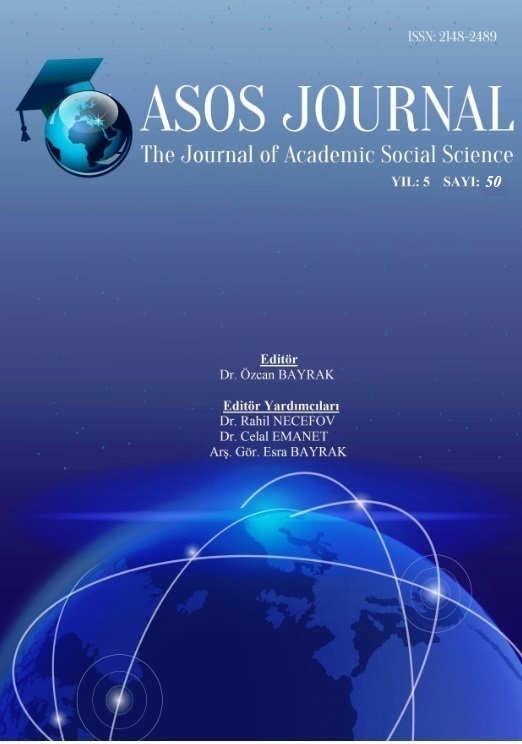Author :
Abstract
Osmanlı şehir tarihi çalışmalarının en önemli kaynaklarından olan Şer’iyye sicilleri, aynı zamanda Osmanlı tarihi ve kültürünün hukuki, içtimai, siyasi ve iktisadi kaynakları arasında yer almaktadırlar.Ait oldukları döneme ilişkin pek çok bilgi ihtiva eden bu kaynaklardan, bir bölgeye ait idari, mali, demografik, tarımsal, askeri, sosyal, ailevi ve günlük yaşama dair çeşitli bilgiler elde edilebilmektedir. Bu çalışmada 350 Numaralı Harput Şer'iyye Sicilleri'nden yola çıkarak 1662-1663 yılları arasında Harput Sancağı'nda yapılan mülk satışları ele alınmıştır. Söz konusu dönemde Harput Sancağı'nda yapılan mülk satışları; özellikleri, satışı gerçekleştiren taraflar, dini gruplar ve cinsiyet açısından incelenmiştir. Satışların geneline bakıldığında, satış işleminin bazen kişilerin borçlarına takas şeklinde, bazen ihtiyaçtan, bazen de çocukların vasileri tarafından yetimlerin ihtiyaçlarını gidermek için gerçekleştiği görülmektedir.
Keywords
Abstract
As one of the important sources for studies of Ottoman urban history, the records of sharia courts are among the legal, social, political and economic sources of the Ottoman history and culture. These sources contain much information about the time they belong to, hence one can obtain kinds of knowledge from them in regard to a particular region’s administrative, financial, demographic, agricultural, military, social and familial characters, as well as aspects of daily life. This study is based on the records of the sharia court of Harput No. 350 and takes up the property sales that took place in 1662-1663. In the study, property sales in Harput in the given period are examined in terms of conditions, parties of transaction, their religious groups and genders. An overall evaluation shows that the reasons of these sales were sometimes trading one’s debts, sometimes need for capital, and sometimes meeting the needs of orphan children by their guardians.





